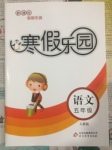题目内容
近年来大城市交通拥堵严重,影响了人们的生活和经济发展,对此人们十分抱怨。假如你是李华,请根据以下要点用英语给报社写封信。
1. 交通现状及影响;
2. 提出改进建议;
3. 希望建议被采纳。
注意:1. 词数100左右;
2. 可以适当增加细节,以使行文连贯;
3. 开头语已为你写好,不计入总词数。
Dear editor,
I am writing to you to talk about the heavy traffic.
_____________________________________________________________________________________
_____________________________________________________________________________________
_____________________________________________________________________________________
Yours,
Li Hua
Dear editor,
I am writing to you to talk about the heavy traffic. Nowadays, people in many big cities are complaining about the heavy traffic. It has seriously influenced people’s daily life and economic development. To solve the problem, I’d like to put forward some pieces of advice.
For one thing, more streets and roads should be built. In this way, we can speed up the flow of buses and cars. For another, the number of bikes and cars can be limited, which can decrease the traffic flow. But the most important thing is that the number of private cars should be put under control. Meanwhile, buses should have their own special routes which cannot be used by other vehicles. Besides, underground train and city train should be developed quickly.
I do hope my suggestions will be taken.
Yours,
Li Hua
【解析】
试题分析:本文是一篇书信类作文,要求给报社写一封信,主要要求有:1. 交通现状及影响;2. 提出改进建议;3. 希望建议被采纳。需要注意的有:1. 词数100左右;2. 可以适当增加细节,以使行文连贯;3. 开头语已为你写好,不计入总词数。
亮点说明:本文用了书信应该用的格式,用了一般现在时,将来时等的时态穿插。用了For one thing和For another等时间词汇,条理清楚的写出了各种要点,并且自己也写出了观点
考点:考查书信类作文

 寒假乐园北京教育出版社系列答案
寒假乐园北京教育出版社系列答案